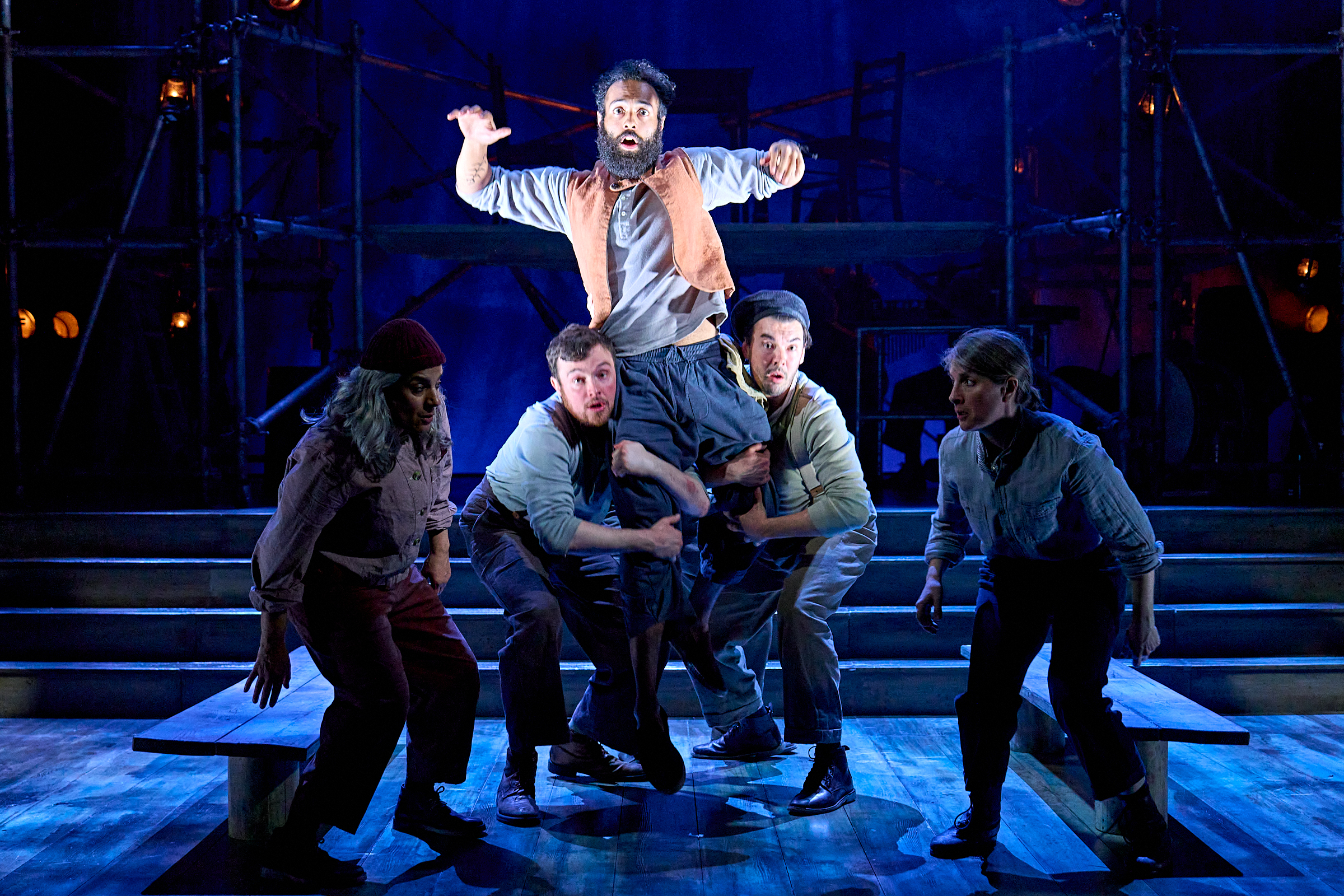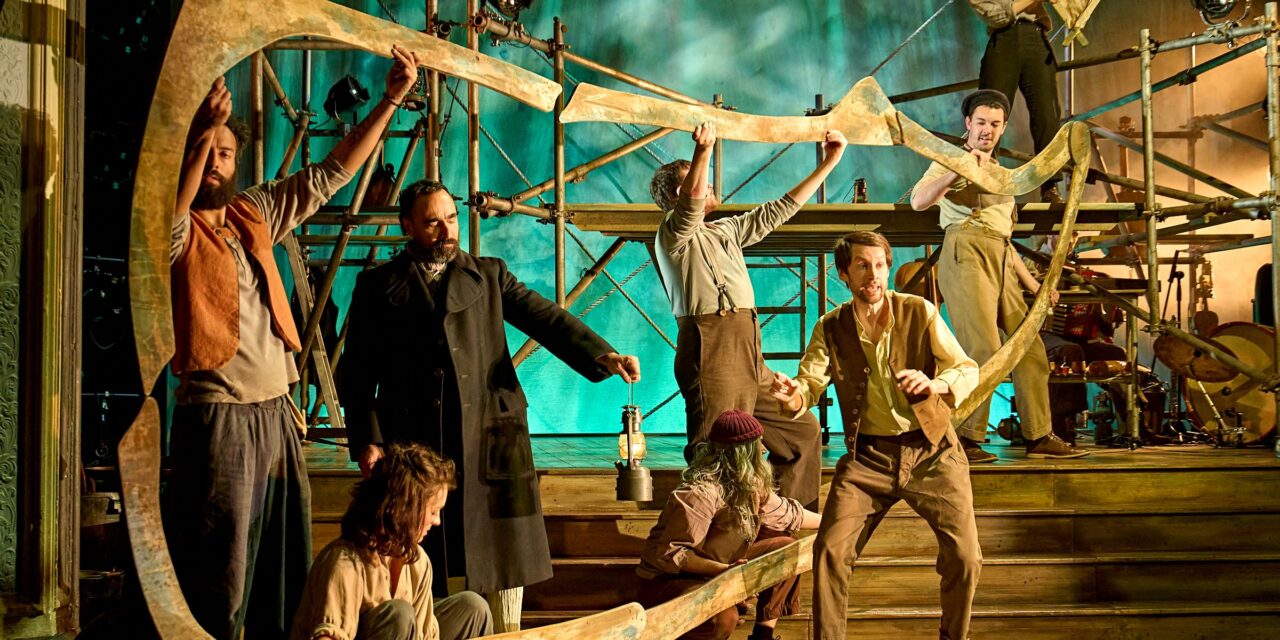
11 – 15 June
Theatre company Simple8 have a proven track record of producing innovative, bold new plays from classic stories; their take on Herman Melville’s acclaimed 1851 novel adds a fresh perspective on a classic, much-loved tale through a swashbuckling and dynamic ensemble performance.
The story of Moby Dick is narrated by Ishmael, a former teacher who embarks on a high seas adventure on board a Nantucket whaling ship captained by the mysterious, one-legged Captain Ahab, who himself is looking to wreak revenge on the eponymous sperm whale who robbed him of his left leg in a previous encounter. What ensues is a thrilling and climactic chase which has become one of the greatest novels in American literature. DH Lawrence, no less, described it as “the greatest book of the sea ever written.”
In transferring such an ambitious novel to the stage, adaptor Sebastian Armesto has aimed for a stripped back approach, to explore, as he says, “an industry that ravaged the very thing that sustained it”, as well as to examine humankind’s hubristic battle with the powers of nature. His employment of Jerzy Grotowski’s ‘poor theatre’ philosophy means everything which is not essential to the performance is minimised, or eliminated altogether, allowing us to focus more simply on the actors and their story. Whale-hunting proliferated in the 1800s, driving several species to the brink of extinction: their scarcity is perhaps reflected in the frugal but functional staging of this production.
A talented cast of actor-musicians combines to retell Melville’s allegorical tale with enthusiasm and skill, led by the impressive Guy Rhys as the enigmatic Ahab, but supported ably by a ‘crew’ of eight who inject energy and pace into this simple but captivating narrative. Music, in some form, is ever-present, either on or off-stage: the musicians successfully blend traditional sea shanties which capture the rollicking camaraderie of life on board Ahab’s ship, the Pequod, with more sinister and menacing whale music; the latter serves to help ramp up the tension in a more gripping second act as the chase nears its dramatic denouement. Clever use is made of a range of simple props – barrels, bones and bloodied fabrics suggest the visceral nature of this barbaric industry; the Pequod is suggested rather than presented, but why not, when a few scaffolding planks, poles and some ropes can easily convey a whaling ship? What’s more, other ‘props’ are purely the product of our imagination – harpoons, skiffs, oars, weapons…..even the whales themselves. And yet none of this detracts from the story. Moreover, it enhances it. We are given all we need on stage – our imagination does the rest.
Director Jesse Jones’ minimalist production is greatly supported by Kate Bunce’s simple but effective design, whereas Johanna Town’s clever lighting, including a shocking but powerful use of red at one point, is one of the show’s many strengths. A couple of the musical numbers perhaps needed a little more polish on the timing, and not all of the cast were able to project their voice with sufficient power and clarity. Nonetheless, the show rises successfully to the challenge of presenting a new interpretation of an elemental and timeless tale, stripping it back to the bare bones – or should that be bare whalebones? – without losing any of the original story’s cautionary power or moral message. I was hooked.
★★★★☆ Tony Clarke 12 June 2024
photographers credit @ Manuel Harlan


